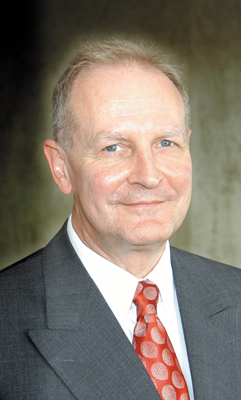| MARC VAN RYSSELBERGHE | Ambassador of Belgium |
|
BELGIAN-TURKISH RELATIONS AND RELATIONSHIPS |

 Direct contact between citizens of both countries is undoubtedly the best way to promote understanding. Since the 1960s, tens of thousands of Turkish citizens, many of them from Emirdağ (Eskişehir province), settled in Belgium. Around half of them acquired Belgian nationality. In the other direction, more than half a million Belgian nationals travel to Turkey every year, to enjoy holidays. Turkey constituted thus in 2005 the number one foreign tourist destination.
Direct contact between citizens of both countries is undoubtedly the best way to promote understanding. Since the 1960s, tens of thousands of Turkish citizens, many of them from Emirdağ (Eskişehir province), settled in Belgium. Around half of them acquired Belgian nationality. In the other direction, more than half a million Belgian nationals travel to Turkey every year, to enjoy holidays. Turkey constituted thus in 2005 the number one foreign tourist destination.
During the last 15 years, Belgian bilateral trade with Turkey has been among the fastest growing in the world, and since 2004 has moved beyond an annual level of over 4 billion Euro. Belgian, or partly Belgian investments in Turkey have been impressive in the last years, especially in the banking sector, and complete the commercial relationship.
It is true that such intense relations sometimes give rise to problems and at times even to bilateral tensions, when critical issues deemed important in both countries are considered in a different light, and based on different sensibilities. Sensational media coverage sometimes eclipses the overall close and friendly picture. However, this should never obscure the underlying solidity.
Since the end of the Second World War, Belgium has chosen to enthusiastically pursue the way of European integration. From the beginning, Belgium has been a keen supporter of Turkish membership to the EU and as such, a community of common destiny links us. Our bilateral relationship throughout the ages has never been tainted by ulterior motives or power play; hence, a climate of confidence characterizes it, and enables us to work wholeheartedly to this common future. In the present difficult times, it is more than ever essential not to forget the final goal.
Beyond the technical, economical and political difficulties that lie along our common future, the importance of strengthening the direct interpersonal relations cannot be overestimated. A common destiny means that individuals themselves break down the barriers of separation that keep communities apart and separate. This, in the end, may prove to be the ultimate and decisive test towards a lasting success of the European venture. It is something I fervently look forward to and hope for.